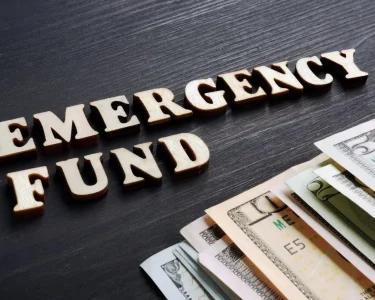In an unpredictable world, financial resilience stands as a stalwart defense against the unexpected. Life’s uncertainties, whether in the form of medical emergencies, car repairs, or unexpected job losses, can strike without warning, leaving individuals and families financially vulnerable. However, with the right strategies and mindset, anyone can prepare for and overcome these financial challenges.
The Anatomy of Financial Resilience
Financial resilience is not merely a lofty aspiration, but a well-structured approach to managing life’s unexpected expenses. It encompasses a set of skills and strategies that allow individuals to bounce back from financial setbacks, minimize debt, and maintain a secure financial footing.
At its core, financial resilience involves building an emergency fund, managing debt wisely, having adequate insurance coverage, and investing in one’s financial education. These pillars provide a solid foundation that can help individuals withstand the storms of life without sinking into the quicksand of financial distress.
Building the Emergency Fund
The cornerstone of financial resilience is the emergency fund, a financial cushion that can soften the blow of unexpected expenses. A typical emergency fund should cover three to six months of living expenses, but it’s wise to tailor it to your specific circumstances. Saving consistently, whether through automatic transfers or dedicated budgeting, is the key to building a robust emergency fund.
Managing Debt Wisely

While it may seem paradoxical, managing debt is an essential component of financial resilience. It involves understanding the types of debt, prioritizing high-interest debt repayment, and using credit wisely. Reducing the burden of debt frees up funds for your emergency fund and investments.
Insurance: A Safety Net
Insurance is often overlooked when discussing financial resilience, but it plays a vital role in protecting your financial health. Having health insurance, auto insurance, home insurance, and life insurance (if applicable) can shield you from large financial burdens in the event of accidents, illnesses, or disasters.
Investing in Financial Education
Finally, financial resilience is fortified through knowledge. Educating yourself about personal finance, budgeting, and investing is an investment in your financial future. Resources such as books, online courses, and speaking with financial advisors can provide the necessary knowledge to make informed financial decisions.
The Power of Mindset
Financial resilience isn’t only about the nuts and bolts of money management; it also depends on your mental outlook. Developing a resilient mindset means staying calm under financial pressure, adapting to new challenges, and maintaining a positive, long-term view of your financial journey.
Conclusion: A Lifelong Journey
In the unpredictable journey of life, financial resilience is your compass and anchor. It empowers you to face unexpected expenses with confidence, and to weather the financial storms that may come your way. Remember, it’s never too late to start building your financial resilience, and with each step, you become better prepared to handle whatever life throws your way.
For more in-depth insights on financial resilience, stay tuned for our upcoming interviews with financial experts, and real-life stories of individuals who have navigated their way to financial security.




